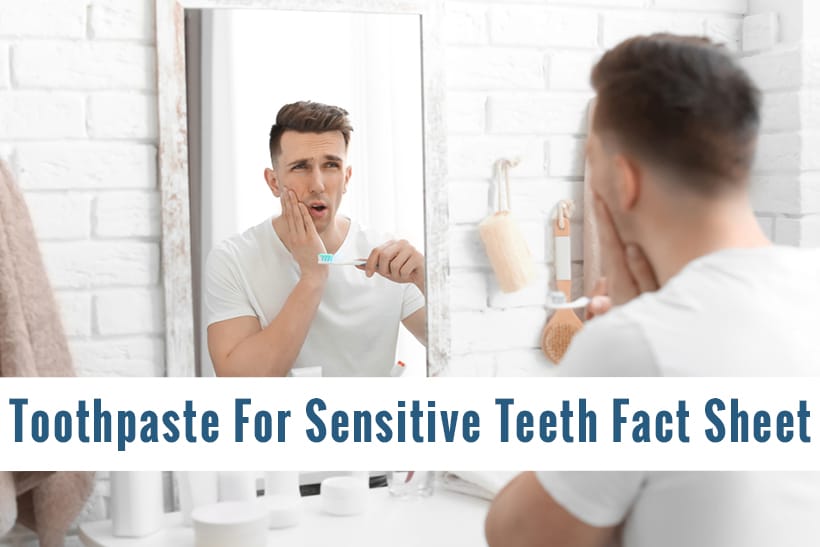
If you have sensitive teeth, you know tooth sensitivity is no fun. No one enjoys feeling pain when they consume something hot or cold. Thankfully, many products are available today to help reduce sensitivity so that eating and drinking aren’t so painful.
Sensitivity can range from minor to severe. Sometimes it’s a sign of something small, but other times, it can indicate a more significant problem. Sensitivity is a good reason for calling your dentist and scheduling an appointment, but understanding a little bit more about sensitivity can help you know the right time to call your dentist.
What Causes Sensitive Teeth?
In a healthy tooth, the crown’s outermost part is composed of a tough substance called enamel. The enamel layer is vital because it protects the softer, inside part of your tooth. If the enamel layer is worn away by grinding or compromised due to a chip or fracture line, you may feel some sensitivity in this area. Toothbrush abrasion can cause wear at the gum line, and this may lead to sensitivity. If you clench or grind your teeth, you might also feel sensitivity at or near the gum line, especially if the root surface is exposed.
Sensitivity seems to come and go, and exposure to hot or cold temperatures may create your sensitivity. It typically presents as sharp pain and usually goes away when a hot or cold irritant is removed.
If you notice pain that is constant or that there is throbbing, these symptoms are more typical signs of an infection. When we talk about sensitive toothpaste, we refer to reducing pain associated with sensitivity and not disease. If you believe that you have an infection, a chipped tooth, or that you are grinding your teeth, these may require different or additional treatment, and it would be best to call your dental office.
How Does Toothpaste For Sensitive Teeth FactActually Work?
Sensitivity toothpaste works by diminishing the sensitivity associated with hot, cold, and even sometimes sweets. Sensitive toothpaste contains active ingredients that block the pain receptors that respond to heat, cold, and sugar.
Active ingredients found in sensitive toothpaste:
- Potassium nitrate: works to calm nerves in our teeth and keep them from sending pain signals to the brain.
- Stannous fluoride helps build a protective layer over vulnerable areas on our teeth, which protects us against sensitivity.
We recommend using toothpaste for sensitive teeth twice a day. It will take a few weeks of consistent use before you notice a change in your sensitivity symptoms. It isn’t recommended that you alternate with other kinds of toothpaste as non-sensitive kinds of toothpaste are more abrasive and remove the layer formed by the toothpaste for sensitivity.
What Toothpaste Is Best?
There are many good sensitive kinds of toothpaste available on the grocery store shelves today. It’s no wonder that it can feel a little overwhelming with so many options if you are just beginning your search for sensitive toothpaste. We suggest you look for a toothpaste with the active ingredient(s) listed above.
Most brands now carry toothpaste for sensitive teeth, so if there is a specific toothpaste brand that you prefer, we recommend starting your search in that brand. The cost of sensitive teeth toothpaste should be pretty similar to what other non-sensitive kinds of toothpaste cost, so you shouldn’t notice a huge change there.
Treating Sensitive Teeth At The Root Cause
When it comes to sensitivity, fixing the symptoms can be tiring. It may be in your best interest to put the sensitive toothpaste away and treat the root cause of your sensitive teeth. This may include fluoride treatments, gum grafting, bonding, a root canal, or a mouthguard.
If you have tried sensitive toothpaste for a few weeks with no improvement or would like more answers to your sensitivity, we suggest seeing your dentist at Riverside Dental Care. We are happy to help you get to the root cause.



Leave a Reply